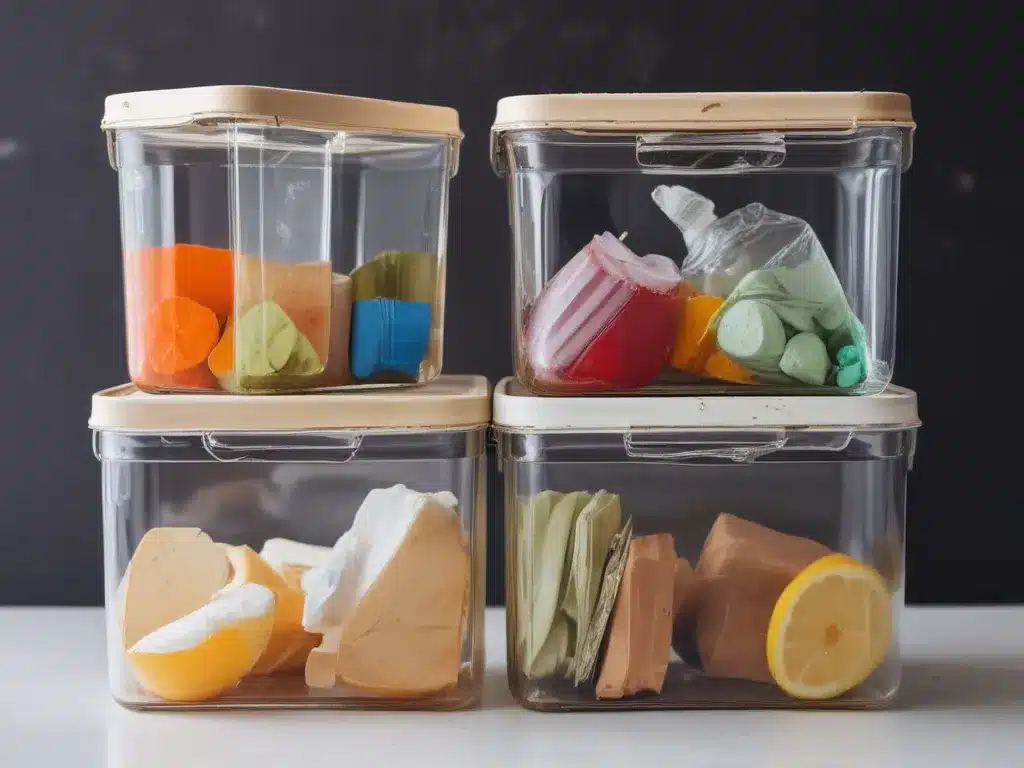Introduction
h2> Embracing a zero-waste lifestyle has become increasingly popular as individuals strive to reduce their environmental impact. One area where this approach can be easily adopted is in the realm of cleaning supplies. By reusing containers and making your own natural cleaning solutions, you can not only minimize waste but also save money and protect your health from harsh chemicals. In this comprehensive guide, I will delve into the art of creating homemade cleaning supplies, exploring the benefits, essential ingredients, and step-by-step recipes for various cleaning needs.
The Benefits of Homemade Natural Cleaning Supplies
h3> Reducing Plastic Waste
The (subject) plastic containers (predicate) contribute significantly (object) to environmental pollution. By reusing containers, you can prevent these single-use plastics from ending up in landfills or oceans, where they can take centuries to decompose and harm wildlife.
h3> Cost Savings
The (subject) store-bought cleaning products (predicate) can be expensive (object), especially if you opt for eco-friendly or natural options. Making your own cleaning supplies from simple, inexpensive ingredients can significantly reduce your household expenses.
h3> Avoiding Harsh Chemicals
The (subject) conventional cleaning products (predicate) often contain (object) harsh chemicals that can be harmful to your health and the environment. By making your own natural cleaners, you can ensure that you’re using safe, non-toxic ingredients that are gentle on surfaces and won’t expose you or your family to potential health risks.
Essential Ingredients for Natural Cleaning Supplies
h3> Vinegar
The (subject) vinegar (predicate) is a versatile (object) and effective cleaning agent. Its acidic nature helps cut through grime, remove stains, and disinfect surfaces. Both white vinegar and apple cider vinegar can be used for cleaning purposes.
h3> Baking Soda
The (subject) baking soda (predicate) is a gentle abrasive (object) that can effectively scrub away dirt and grime while being safe for most surfaces. It also has deodorizing properties, making it ideal for tackling odors.
h3> Castile Soap
The (subject) castile soap (predicate) is a plant-based (object), biodegradable soap that can be used for a variety of cleaning tasks, from washing dishes to mopping floors.
h3> Essential Oils (Optional)
The (subject) essential oils (predicate) can add (object) a refreshing scent to your cleaning solutions while providing additional antimicrobial properties. Popular options include lemon, lavender, and tea tree oil.
Reusing Containers for Homemade Cleaning Supplies
h3> Suitable Containers
The (subject) reusable containers (predicate) can be found (object) in various forms, such as empty spray bottles, mason jars, or even repurposed plastic bottles. Look for containers with tight-fitting lids to prevent spills and leaks.
h3> Labeling and Organization
The (subject) proper labeling (predicate) is crucial (object) when making your own cleaning supplies. Clearly label each container with the contents and ingredients to avoid confusion and ensure safe usage.
h3> Container Cleaning
The (subject) thorough cleaning (predicate) is essential (object) before reusing any container. Ensure to remove any residue or lingering odors from the previous contents to prevent contamination of your homemade cleaning solutions.
Recipes for Homemade Natural Cleaning Supplies
h3> All-Purpose Cleaner
| Ingredients | Quantities |
|---|---|
| Water | 1 cup |
| Vinegar | 1/2 cup |
| Castile Soap | 2 tbsp |
| Essential Oil (optional) | 10-15 drops |
Instructions:
1. In a spray bottle, combine the water, vinegar, and castile soap.
2. Add the essential oil (if desired) and shake well to mix.
3. Use this versatile cleaner for countertops, floors, and general cleaning tasks.
h3> Glass and Mirror Cleaner
| Ingredients | Quantities |
|---|---|
| Water | 1 cup |
| Vinegar | 1/4 cup |
| Rubbing Alcohol (optional) | 2 tbsp |
Instructions:
1. In a spray bottle, mix the water and vinegar.
2. Add the rubbing alcohol (if desired) to help prevent streaking.
3. Shake well and use this solution to clean glass surfaces, mirrors, and windows.
h3> Toilet Bowl Cleaner
| Ingredients | Quantities |
|---|---|
| Baking Soda | 1/2 cup |
| Vinegar | 1/2 cup |
| Castile Soap (optional) | 1 tbsp |
Instructions:
1. Sprinkle the baking soda around the toilet bowl.
2. Pour the vinegar over the baking soda, followed by the castile soap (if using).
3. Let the mixture sit for a few minutes, then scrub with a toilet brush and flush.
h3> Floor Cleaner
| Ingredients | Quantities |
|---|---|
| Water | 1 gallon |
| Vinegar | 1/2 cup |
| Castile Soap | 1/4 cup |
| Essential Oil (optional) | 20-30 drops |
Instructions:
1. In a bucket, combine the water, vinegar, and castile soap.
2. Add the essential oil (if desired) for a pleasant scent.
3. Use this solution to mop and clean hard floors, such as tile, laminate, or hardwood.
h3> Laundry Detergent
| Ingredients | Quantities |
|---|---|
| Washing Soda | 1 cup |
| Castile Soap | 1/2 cup |
| Essential Oil (optional) | 10-15 drops |
Instructions:
1. In a large container, mix the washing soda and castile soap.
2. Add the essential oil (if desired) for a fresh scent.
3. Use 1-2 tablespoons of this homemade detergent per load of laundry.
Remember, when making your own cleaning supplies, always use caution and follow safety guidelines, especially when handling ingredients like vinegar or essential oils. Additionally, test any new cleaning solution on a small, inconspicuous area first to ensure compatibility with the surface.
Conclusion
By embracing a zero-waste approach and making your own natural cleaning supplies, you can contribute to a cleaner and greener environment while saving money and protecting your health. Reusing containers and utilizing simple, readily available ingredients allows you to create effective cleaning solutions tailored to your specific needs. Embark on this eco-friendly journey and enjoy the satisfaction of creating a cleaner, more sustainable home.







